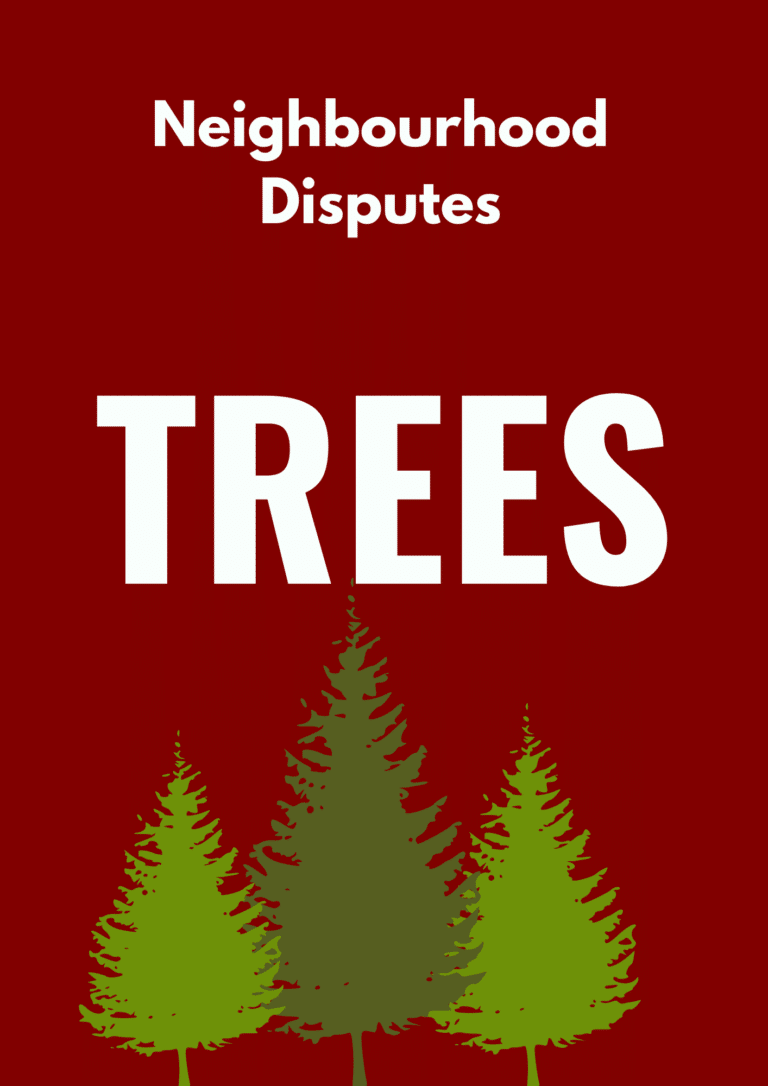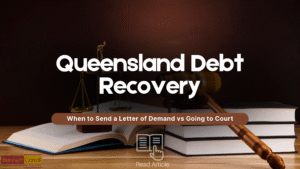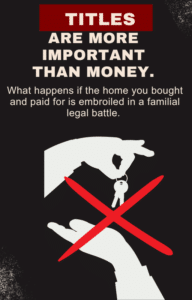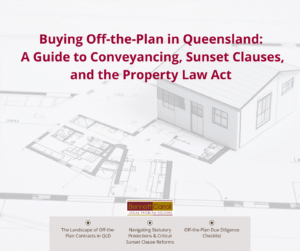What can you do about overhanging trees? Who’s responsibility is overhanging trees? What do do if a neighbours tree is affecting you?
One of the most common causes of disputes between neighbours are trees. The Queensland Neighbourhood Disputes (Dividing Fences and Trees) Act 2011 (“the Act”) provides the responsibilities and rights of property owners and neighbours in relation to dividing fences and trees. The Act applies to; trees in urban areas, on land that adjoins a neighbour’s property as well as land separated by a road. Importantly the Act does not apply to; trees on rural land, on land that exceeds 4 hectares, on land owned by a local government being used as a public park, on land maintained for certain purposes including commercial production, or planted as a condition of a development approval.

What is a tree?
A “tree” is defined by the Act as:
- any wood perennial plant;
- any plant resembling a tree in form and size (for example; bamboo, banana plant, palm and cactus);
- a vine; or
- a plant prescribed under regulation.
- A tree can also include a bare trunk, a stump rooted in the land and a dead tree.
Who is responsible for the tree- which neighbour?
Tree-keepers are responsible for cutting and removing any branches of a tree that overhangs a neighbours land. They must also ensure the tree does not cause:
- serious injury to a person;
- serious damage to a person’s land or property on a person’s land; or
- substantial, ongoing and unreasonable interference with a person’s use and enjoyment of the person’s land.
Leaves, flowers, seeds and fruit are generally not sufficiently substantial to justify a QCAT Order to remove or cut back a tree.
A tree-keeper is typically the registered owner of the land the base of the tree trunk is situated on. Therefore, if the tree is located on the boundary and the majority of the trunk is on your land, you will be classed as the tree-keeper. Alternatively, if the tree is exactly on the boundary then each landowner will share responsibilities and liabilities.
Can I access my neighbour’s property to cut and remove overhanging branches from my tree?
You must provide your neighbour with written notice that you need to enter their land to cut and remove overhanging branches from your tree. The written notice must provide the time and date you will perform the works. The work must be performed within 30 days after the date you provide notice, or as agreed. If your neighbour explicitly refuses you permission, you must not enter your neighbour’s land or else you risk committing a trespass.
What are my rights as a neighbour regarding a tree ?
Generally, the neighbour of a particular tree is the registered owner or occupier of land affected by by the tree. To be ‘affected’ your land must adjoin the land on which the tree is situated, or your land and the land the tree is situated must be separated by a road. Land will be ‘affected’ where:
- branches from the tree overhang the land; or
- the tree has caused, is causing or is likely to cause within the next twelve months:
- serious injury to a person on the land;
- serious damage to the land or any property on the land; or
- substantial, ongoing and unreasonable interference with the neighbour’s use and enjoyment of the land.
A tree will interfere with the use and enjoyment of land if it:
- interferes with television or satellite reception;
- interferes with the proper functioning of solar panelling;
- shades sunlight from the windows or roof of their property if the tree branches are more than 2.5 metres above the ground;
- obstructs a view that existed before the neighbour took possession of the land if the tree branches are more than 2.5 metres above the ground;
- creates a substantial and ongoing accumulation of tree litter in their yard.
What can you do if a tree is affecting you?
It is firstly recommended that you speak with your neighbour to resolve the issue informally. If you are unable to resolve the dispute informally between yourselves then you should contact us and obtain legal advice.
You can exercise your common law right of abatement, by removing overhanging branches and roots to your boundary line. You may either return to your neighbour or dispose of the lopped branches, roots or fruit from the tree. You must ensure that you comply with any vegetation or tree protection orders.
You can provide your neighbour with written notice to cut and remove overhanging branches that are at least 50cm from the common boundary, and are 2.5m or less above the ground. The notice must:
- state the time by which the branches must be removed (no less than 30 days from when your neighbour received the notice);
- ask your neighbour to provide at least one day’s written notice of the date the removal will occur and who will perform the work;
- provide your neighbour and their contractor with permission to enter your land on the agreed date between 8am and 5pm; and
- include at least one written quote for the cost of the work.
If the neighbour does not remove the branches within the specified time, you or a contractor can remove the branches at your neighbour’s expense. Your neighbour will be liable to pay for reasonable expenses only to a maximum of $300 per year for removing the overhanging branches.
If the branches are more than 2.5 metres off the ground, and overhang the common boundary by at least 0.5m you can apply for a QCAT order. Failure to comply with a QCAT order without a reasonable excuse can result in the tree-keeper incurring a fine of up to $100,000.00.
Call us on or email and safeguard your interests every step of the way.
To discuss a matter involving a overhanging tree feel free to contact us today. Bennett Carroll Solicitors have offices located in Brisbane, Gold Coast and the Sunshine Coast
Freecall: 1300 334 566
Fax: (07) 3343 8664
Email: info@bcglaw.com.au
Website: www.bcglaw.com.au







